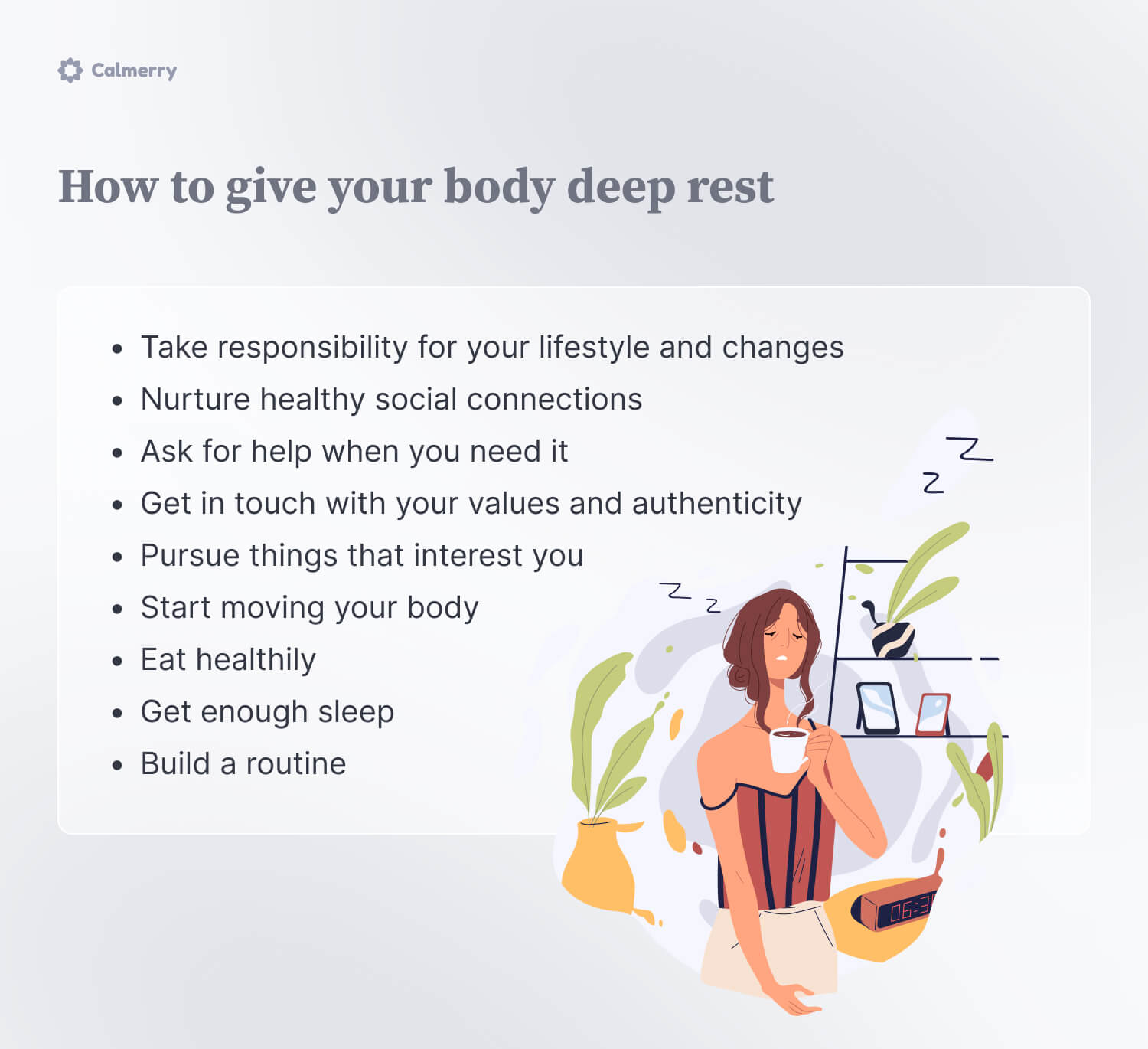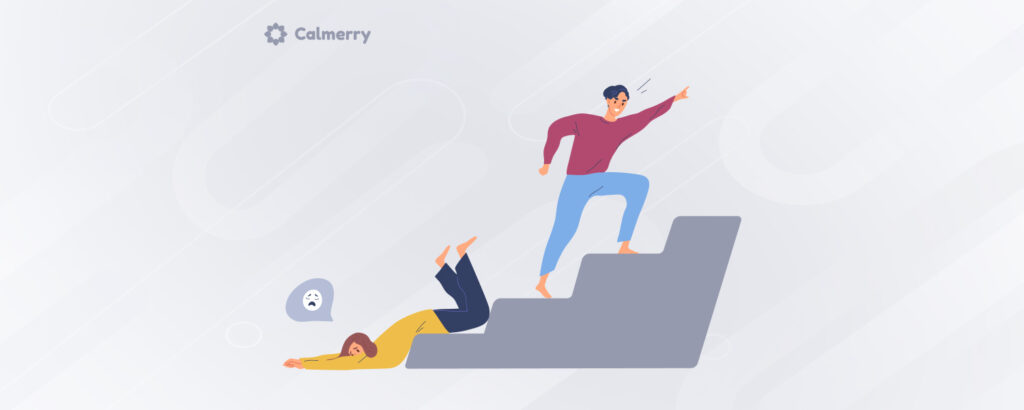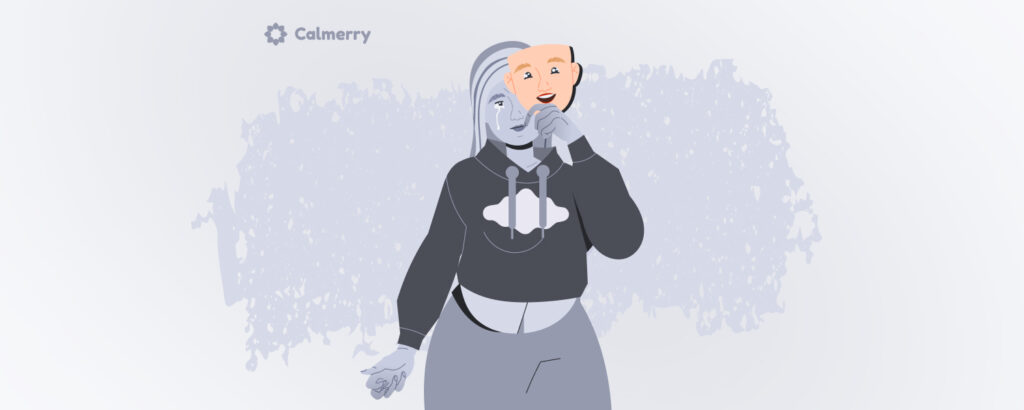Are You Depressed, or Do You Need Deep Rest?

In this article
Are you truly depressed, or do you have a challenging life that needs some lifestyle changes? Do you think this is the same? No! It’s crucial to know the difference.
Misdiagnosing or overdiagnosing happens more often than you might think, and we need to reduce it as much as possible.
Overdiagnosing can put a label on someone, a label that might not belong. Imagine being tagged as “depressed” when you’re not and starting to believe it, or even worse, being medicated for a condition you don’t have.
Sometimes, what your body and mind really crave is deep rest. And I’m not talking about a lazy day in bed. I’m talking about a break from the constant pressure to be something you’re not, from the draining weight of inauthenticity and unhealthy lifestyle.
– Heythem Naji, Psychologist and Life Coach
Your mind and soul might be yearning for a pause from being squeezed into societal norms and expectations.
So, let’s figure this out together: Are you dealing with clinical depression, or could some changes in your lifestyle be the key to feeling better?

Understanding clinical depression
First, let’s get a clear picture of clinical depression. It’s not just feeling sad or having a bad day. Clinical depression is a serious condition.
Depressive symptoms are more intense than just feeling tired or burnt out. They stick around for weeks, months, or even years. They affect your daily life – work, school, relationships, everything.
It isn’t something you can shake off or get over by yourself. It’s a health issue that needs professional help.
Depressive symptoms include being hopeless, tired, having sleep issues, feeling worthless, having trouble concentrating, self-isolation, and so on. But these could also be signs of you not living your authentic self.
Maybe your body is tired of the life you are living. These symptoms may be your body’s way of telling you: I’m tired of playing this character.
This could mean you could fix your symptoms by making lifestyle changes and living out your authentic self.
But often, it’s hard to differentiate between a body that needs deep rest and clinical depression.
So, how can you tell?
What’s the difference between having depression and having a challenging life?
Diagnosing somebody with depression who doesn’t have it would be devastating. It might lead to using medication and other treatment methods you don’t need. It’d be like you are breaking your arm, but you get treated for your leg.
Anti-depressants don’t work for somebody who has a challenging life. They only work for somebody who has clinical depression.
On the other side, not diagnosing somebody who suffers from clinical depression is equally harmful. That’s why consulting with a qualified mental health professional is crucial for an accurate diagnosis and appropriate treatment plan.
– Heythem Naji, Psychologist and Life Coach
So, the question we want to ask today is: Are you depressed? Do you have a challenging life? Or a combination of the two?
To indicate whether you might be depressed or you need deep rest, ask yourself these questions:
1. Do you feel sad or numb?
Sadness is only a small part of depression. More often than not, depressed people feel nothing at all anymore. Negative emotions mean that you care. It means that you are alive. It’s an expression of your mind and heart.
It gets concerning when you don’t feel anything anymore. When you walk around numb, you no longer feel intense emotions. That’s a sign of hopelessness and is associated with clinical depression.
So if you feel sad often, you might be unsatisfied with your life. This doesn’t mean you are depressed. Clinical depression is not always due to external life circumstances. It can arise from many sources and factors (biological, psychological, and environmental) and is not always related to how good or bad one perceives one’s life to be.
So, if you’re struggling with persistent feelings of depression, it’s important to consult a professional.
2. Are you spending your time with things you are not interested in?
Depression, more often than not, is actually people who are spending their lives with things that interest them but still feel numb inside. This is a sign of depression. The outside seems good, but the inside is bad. If you spend time all day in the office but would rather fix cars, of course, you feel depressed.
Choosing a job you like is a privilege, but it is definitely something you should look at. Spending 8 hours a day with something you are not interested in is hard on your body. Your body wants deep rest.
What makes it even worse is that pursuing something you are not interested in means not pursuing the things that interest you. And the thing about interests is that they will haunt you if you don’t pursue them.
3. Are you working toward something you care about?
Long-lasting positive emotions come from pursuing a goal. They come from progressing in something you care about. Pursuing something gives you purpose and ambition in life.
Many of us don’t have that in our lives. Therefore, we lack positive emotions. This can be then understood as depression.
But if you don’t have any goals in life, if you don’t have any vision for yourself, you may lack sources for experiencing positive emotions.
This is challenging because it may lead people to seek short-term pleasure, such as drugs, endless phone scrolling, alcohol, porn, sugar, and other unhealthy behaviors.
4. Do you have social connections?
This one is crucial. We humans are social creatures. We evolved to be part of a community. We are interdependent with our surroundings.
So, ask yourself:
- Do you have friends you trust?
- How is your relationship with your family?
- Do you have a healthy, intimate relationship?
We humans can get into dark places when feeling alone. Thus, if you don’t have anybody caring about you, it’s only natural to feel unhappy.
5. Are you satisfied with your level of physical health?
Whenever somebody comes to me and tells me that they have depression, my first question is always: Are you moving your body?
You’d be surprised by how many answer with a “no” and believe they are depressed.
Our bodies are designed to move. Our bodies and minds don’t function well if we keep them inactive. We need to move it.
I know moving our bodies is the last thing we want to do when we feel depressed. But we need to make a conscious effort.
Going for a half-hour walk when we feel overwhelmed by life can do wonders.
Also, what is your diet like? Are you eating processed food a lot? At least 80% of your diet should stem from unprocessed food.
Many people get healthy and start striving once their health is in order.
So sometimes you are not depressed; you are just living unhealthy and not giving your body what it needs.
– Heythem Naji, Psychologist and Life Coach
6. Are you authentic?
This one took me a long time to see. Inauthenticity is the primary reason why our bodies need deep rest. Being inauthentic is demanding on our body. It’s constantly working to keep up the persona.
Our bodies are resilient, so they can do that for years. But eventually, it will crash and go into dark places. You’ll notice that you feel tired, avoid social events, isolate yourself, and are physically inactive. These are all symptoms of depression. But also symptoms of inauthenticity.
So, we need to ask ourselves:
- Am I speaking my truth?
- Am I true to my needs and values?
- Can I genuinely express what I really think?
- Do people around me really know who I am?
If you cannot answer these questions with “yes,” that might be a problem. It’s only natural to feel unhappy and depressed in this case. Your body is tired from pretending.
Summary
The bottom line is that there are some human needs we need to have to live a happy life. This involves having social connections, purpose and meaning, a fulfilling job, and a healthy body.
Your basic human needs are unmet if you don’t have that. And your body will respond with a depressed mood. But that doesn’t mean you have depression.
Depression means that you may have depressive symptoms even though you have your basic human needs met.
If you don’t have them met, you need to work to meet them. At least some of them. That means you need to make lifestyle and behavioral changes to meet them.
Once you make these changes, reevaluate. If you still feel depressed, then there is a good chance you are struggling with clinical depression. If not, most likely, you will feel improvement in your symptoms.
But how can you make these behavioral changes?
How to give your body deep rest
If you want to feel better, there are some lifestyle changes you can make. Of course, if you want to complement those with seeing a therapist, go for it. But it should be to guide you, not to misdiagnose and medicate you.
So what can you do?
1. Take responsibility
It might not be the most convenient thing to hear, but you have a part to play in your life. We need to cultivate the mindset that we control our lives. Only if we take responsibility for our actions, we can make positive changes.
Taking responsibility means looking at the truth:
- How is my life?
- Where do I wanna be?
- What mistake did I make?
- What and how can I fix it?
If you take on responsibility heads-on, you’ll feel empowered. You’ll feel you are in control of your life and can change.
2. Look at your social connections
Do you have people surrounding you? Make a list of who you trust. If you have been isolating yourself, it’s time to meet up with them.
Take the initiative, get out into the world, and foster your relationships.
3. Ask for help
Asking for help usually meets resistance within us. Either because we think it’s gonna make us look weak or we have nobody to talk to. Or simply because we don’t think our issues are big enough to talk about them.
Trust me, sharing and being vulnerable with the right people can be healing. Here, it’s important to talk to people you feel close to.
You can also ask for help from a mental health expert – you don’t need to have a mental disorder to visit a therapist.
4. Pursue things that interest you
Look at your day. How many hours are you investing in something that interests you? And I’m not talking about playing video games or watching TV.
We humans are built to create, to move toward a goal.
The tricky thing is we never know until we try. So, you need to explore and see where your interests are. Then, you try to shift your life in that direction.
5. Start moving your body
I cannot overstate the importance of that. If we are inactive, we are highly susceptible to depression. Our bodies need movement.
Here again, move in a way that interests you. Which sport or physical activity do you like the most? Go do this.
And even if it’s just going for a walk. Walking can do wonders sometimes.
We need to establish a habit of moving. If we don’t do this, there’s little chance of getting out of our low mood.
6. Eat healthy
If you put bad stuff inside your body, this may cause no good. Nutrition is the fuel of our bodies. Now, imagine you fuel your car with dirt? It would break. And that’s exactly how it works when eating unhealthy.
How do we know if something is healthy? To make this one easy for you: Everything non-processed is good. Go for those. Try to eat at least 80% of non-processed food in your day. [1] Nutritionist, K. T. –. (2023, August 8). What is the 80/20 rule diet? BBC Good Food. https://www.bbcgoodfood.com/what-is-the-80-20-rule-diet
7. Get enough sleep
Sleep is talked about a lot. And the psychological literature about the importance of sleep is also clear. [2] Crouse, J. J., Carpenter, J. S., Song, Y. J. C., Hockey, S., Naismith, S. L., Grunstein, R. R., Scott, E., Merikangas, K. R., Scott, J., & Hickie, I. B. (2021). Circadian rhythm sleep–wake disturbances and depression in young people: implications for prevention and early intervention. The Lancet Psychiatry, 8(9), 813–823. https://doi.org/10.1016/s2215-0366(21)00034-1 Lack of sleep is unhealthy for us.
For some, healthy sleep means you need to get 8 hours; for some, it means 6 hours. It differs, but find what works for you and stick to it.
A big problem is the dysregulation of our circadian rhythms by staying up late at night and sleeping during the day. This limits the sunlight we see and enhances the light we experience in the dark through our electronic devices.
Dysregulated circadian rhythms are bad for our mental health.
8. Build a routine
Now, this one took me long to figure out. Humans function best when they have a routine.
So, pick a time to wake up and structure your day. Do a checklist of what you want to get done the next day and do that. Please don’t overdo it in the beginning. Pick things you need to do, that you could do and would do.
This will create small wins throughout the day, giving the day much more purpose and meaning.
So, there are many things you can start doing today. There are many things in your control. Start doing them and try them out for a month. Do as many as you can handle. You don’t have to do everything on this list. Pick the ones you think you could do. And light physical exercise has to be one of them.
After this month, come back and ask yourself: Am I depressed?
When to seek professional help
Of course, you can seek help whenever you feel you need to seek help. Even if you don’t think you suffer from depression and you want to get out of your rut in life, professional help is useful.
Now, when do you need to seek help? As early as possible. If you notice signs of depression, it’s best to intervene early. This can make a huge difference in your healing process.
– Heythem Naji, Psychologist and Life Coach
So, if you’re feeling sad, hopeless, or overwhelmed, regardless of your life situation, seek professional help.
And if you read through my posts and you don’t think you have a challenging life but still feel depressed, it’s time to seek help.
Clinical depression is not fixable only with lifestyle and behavioral changes. If you have your life in place but still feel depressed, you most likely suffer from clinical depression.
And if you feel suicidal and hopeless, please seek immediate help.
There are many types of psychotherapy for treating depression. Choose the one that suits you and start your healing process.
A word from Calmerry
At Calmerry, we recognize the importance of personalized therapy. If you’re uncertain about your feelings and wonder whether it’s depression or a profound need for change in your lifestyle, we’re here to help.
Our team of licensed therapists can provide you with the guidance and support necessary to explore these feelings in a safe, understanding environment.
Don’t let uncertainty dictate your well-being. Try online therapy for depression tailored to your unique situation and start your journey toward clarity and improved mental health.
Nutritionist, K. T. –. (2023, August 8). What is the 80/20 rule diet? BBC Good Food. https://www.bbcgoodfood.com/what-is-the-80-20-rule-diet
Crouse, J. J., Carpenter, J. S., Song, Y. J. C., Hockey, S., Naismith, S. L., Grunstein, R. R., Scott, E., Merikangas, K. R., Scott, J., & Hickie, I. B. (2021). Circadian rhythm sleep–wake disturbances and depression in young people: implications for prevention and early intervention. The Lancet Psychiatry, 8(9), 813–823. https://doi.org/10.1016/s2215-0366(21)00034-1
online therapy
live video session




